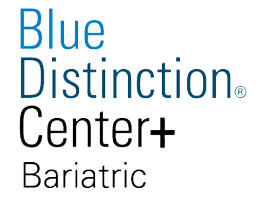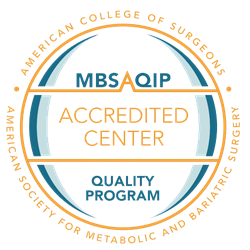
Learn more about weight loss surgery at Rocky Mountain Associated Physicians || www.RMAP.com || (801) 268-3800
Many people will blame food for their weight gain, using food as a source of emotional comfort to celebrate, relax, and manage stressful and emotional situations, as well as boredom. But in reality, that food item didn’t force you to eat it. It is solely up to you with what you eat, not food.
You might have tried numerous strategies and diet plans to work through the relationship you have with food. If this is you, it’s vital to know that you are not alone! This journey to a healthier relationship with food doesn’t need to be traveled down alone.
By regarding and changing your relationship with food in a healthy way, you can lead a healthy and nourishing life. Weight loss surgery is merely a tool. How you utilize this tool given to you by your surgeon is your decision.
When you value your physical health, you can learn to ask yourself, “Will this get me to my goal?” before you dig into sugary or salty snacks/food. You are worth of both physical and emotional health. You are capable and have the ability to manage and express your emotions in healthy ways.
Your Relationship with Food
So, what kind of relationship do you have with food? What does that look like? It can go beyond labeling foods as only “good and bad.” It can impact not only your physical health, but your mental health as well. Having a good relationship with food will make you feel good, both mentally and physically. Think about food as a source of nutrition and energy instead of something to relieve stress, emotions, or to be avoided.
What Does an Unhealthy Relationship with Food Look Like?
- Feeling guilty before and/or after eating
- Avoiding foods labeled as “bad” for you
- Making long lists of food you can and cannot eat
- Ignoring the natural hunger cues of your body
- Stress and anxiety levels rising around social settings
- Fearing being judged for food choices
- Using calorie apps in a restrictive way
In short, feeling any kind of stress, fear, shame, or guilt regarding any food choices, can be a sign of an unhealthy relationship with food.
Making the Change
It can seem easier said than done, which is understandable. A lifetime of habits can be hard to change, but it’s not impossible!
Distinguish Why You’re Eating
- Are you eating because you feel emotionally drained due to a bad day?
- Did you have an argument with someone close to you?
- Are you eating because you feel bored?
- Are you rewarding yourself with food because of an achievement?
If the answer to any of these questions is yes, you could have an unhealthy relationship with food. Changing these habits and practicing mindful eating is key to maintaining your weight loss after bariatric surgery. Knowing your state-of-mind before, during, and after your food choices is important.
Having bariatric surgery is hard. There’s no if’s, and’s, or but’s about that statement. Maintaining that weight loss can also be just as challenging, if not harder. If your habits and mindset remain the same as pre-surgery, weight regain could happen once again. It could be beneficial to meet with a therapist who works with food-related therapy, or a dietician who can educate you further on healthy food habits and nutrition. This can help you find the root cause as to why you reach for food to comfort your emotions.
If you feel those cravings coming on that aren’t driven by actual hunger, try doing one or more of these suggestions to help curb that feeling:
- Read a book
- Write in a journal
- Call a friend
- Soak in a hot bath
- Take a walk
- Meditate
- Hit a punching bag
How You Can Start
Eat Regularly
Skipping meals can lead to you being very hungry and can make you more likely to overeat. It also ups the odds you’ll choose sugary foods, or foods that are fast and high in fat.
You’ve heard it before, and we’ll say it again, eat your breakfast! A morning meal kickstarts your metabolism and can help curb hunger throughout the day.
Keep it Clean
Keeping your fridge and pantry free of foods high in sugar and fat will help keep your meals and snacks healthy and clean. You’ll be more likely to reach for healthier snack options that are nutritious for your body to refuel.
This in an opportunity to make healthy changes not only for yourself, but for your whole family. Encourage participation in meal and snack planning and preparation. Enjoy the flavors, colors, and textures of whole, fresh foods and challenge yourself to learn more about healthy flavors and cooking techniques.
Ask for Help
Don’t be afraid or ashamed to ask for help if you are struggling with your relationship with food. We are here to help! It’s what we are here for.
Medical Weight Loss Experts:
Stacy Parry, FNP
Elizabeth Hanna, DNP
Registered Dietitian
Juliana Betker, RDN
Social Workers:
Erika Olson, LCSW
Amber Hall, CSW
Give our office a call at (801) 268-3800 to get scheduled for an appointment with one of our providers.
Join a Support Group
We believe the success of our patients is due to the hard-work and determination they have, supported by dedicated surgeons and staff. One way we provide the necessary support to our patients after bariatric surgery is through monthly support groups. We have support groups that are held every month via Web-Ex virtually. We believe it very beneficial to our patients to provide group therapy for all patients who wish to be supported in this way.
These groups are designed to help you in every stage after weight loss surgery. We have teamed up with our nurse practitioner, Lissa Hutchings, MSN, APRN, RNP-C, and also Erika Olson, CSW, along with various guests to provide specialized groups following weight loss surgery.
To learn more about our support groups, please visit us here.
Be Aware of Mindful Eating
Be present when you are eating your food/meals. Focus on what you are eating, chew your food thoroughly, and simply be present. Put your phone away, turn the TV off; remove yourself from any distractions while eating. Being distracted while you eat can lead to overeating and missing your body’s natural “hunger cue” of when you are full and when to stop eating.
Remembering that food is fuel to provide the energy and nutrition you need to survive is one step closer to a healthy relationship with food.
Links to related articles:
Habits Sabotaging Weight Loss
Overeating Triggers and Tips
Weight Regain: Living with Fear and Dread
www.RMAP.com
Rocky Mountain Associated Physicians
801-268-3800
1160 East 3900 South, Suite 4100
SLC, UT 84124













 Address: 1521 East 3900 South STE 100
Address: 1521 East 3900 South STE 100 Office: +
Office: +  Fax number (801) 268-3997
Fax number (801) 268-3997 Email: info@rmapinc.com
Email: info@rmapinc.com



